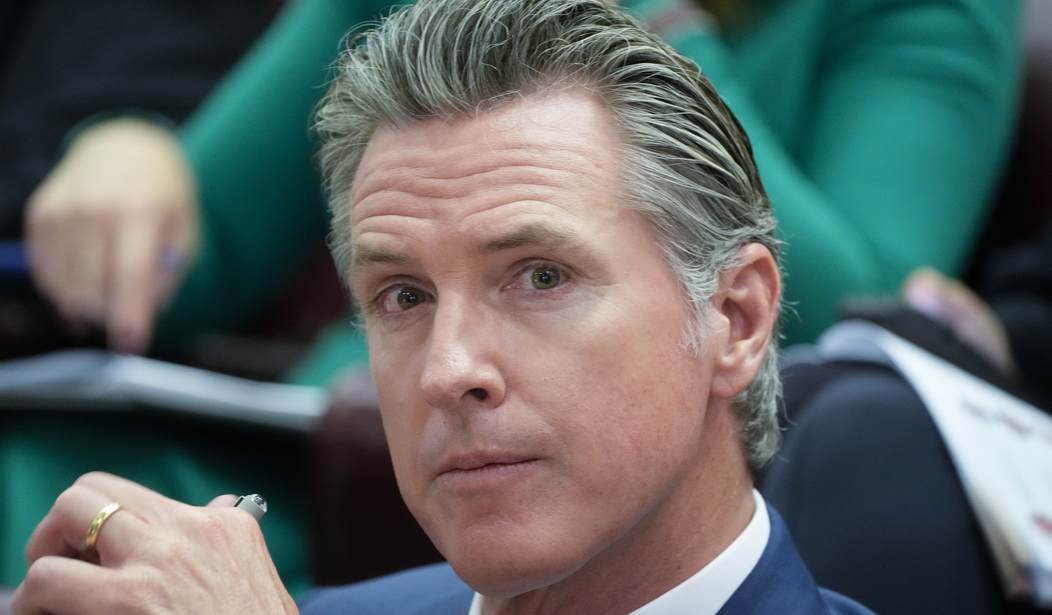California's four-year effort to bring reparations to the forefront of the state's agenda seems to have failed, at least for now. Yesterday, Gov. Newsom vetoed a bill which would have made it easier for black Californians who believe their land was taken unfairly via eminent domain to be compensated.
The bill would have created a process for families to file a claim with the state if they believe the government seized their property through eminent domain due to discriminatory motives and without providing fair compensation...
“I thank the author for his commitment to redressing past racial injustices,” Newsom said in a statement. “However, this bill tasks a nonexistent state agency to carry out its various provisions and requirements, making it impossible to implement.”
The real story here is the fact that the state agency he referred to does not exist. That's because earlier this month the state's black caucus refused to hold a vote on two bills which would have created that new agency.
Years of effort went into making California the first state in the nation to get reparations laws to the governor’s desk to be signed into law. Yet tonight, in the final hours of this year’s legislative session, two key bills to repair harm for African American descendants of enslaved people met their bitter demise...
Bradford’s Senate Bills 1403 and 1331 would have created a new agency and also a fund to help implement policies recommended last year by a first-in-the-nation state task force, including eventual direct cash payments to the African American descendants of people enslaved in the United States. The envisioned California American Freedmen Affairs Agency would have helped Black Californians research their genealogy, confirm their eligibility for reparations payments, and expedite their claims...
But last week, Gov. Gavin Newsom’s administration tried unsuccessfully to change one of them so that rather than create the new state agency to move on reparations, it instead would authorize California State University to study the issue further, and recommend a process for determining a person’s eligibility for reparations payments. That didn’t sit well with Bradford and advocates of his approach, who contend the state has already spent four long years studying reparations.
There may be some shenanigans going on here. Backers of the bill, primarily Democratic Sen. Steven Bradford of Inglewood, claimed the California Legislative Black Caucus was refusing to put the bills to a vote because they feared Gov. Newsom would veto them. And he's probably right that Newsom would have done so if the bills had passed. Polls taken a year ago showed Californians were more than 2:1 against cash reparations. Also, California no longer has a budget surplus but a serious deficit.
Newsom's last minute efforts to turn one of the bills into another blue ribbon commission was a clear hint to the Assembly that he didn't want this on his desk. Vetoing the bills would have been embarrassing for Newsom who, after all, kicked off this effort back in 2020. So it almost looks as if the Assembly took the hint and decided not to hold a vote which a) would have been merely symbolic as it would have been vetoed and b) would have embarrassed the governor at a time when he's trying to be a leading face of the party just prior to an election.
Lori Wilson, the chair of the Black Caucus, claimed the decision not to hold a vote had nothing to do with Newsom. Instead, she claimed there were problems with the bills which had only recently gotten their attention: "In its current form, one of the primary concerns with the bill is that it ceded legislative oversight authority, which is critical given the generational impact this legislation would have."
Again, it looks to me like the Assembly was doing Newsom a solid and other outside observers are blaming the failure of the bills completely on the governor.
There’s only one person who stood in the way of reparations getting off the ground and it it’s the same person who empowered this effort in the first place, Gov. Gavin Newsom...
Don’t let the Black caucus and Newsom fool you, the reparations effort in California is over. The request for another study is the equivalent your mom saying you’d get McDonalds if you do your homework. You didn’t get McDonalds. You had to go in the fridge and make your own food. But in the case of thousands of Black Californians the fridge is almost empty.
I’m sure Newsom can name tons of Black friends that he has but cannot say much about what he is doing to undo the years of oppression their ancestors faced.
Ouch!
So is this effort truly dead? Lori Wilson says the bills will be brought up again next year, which is probably just talk because the polling and the state's financial situation won't be any different next year (unless they get worse). Sen. Bradford, the chief proponent of the bills, sees this as a loss for the whole nation.
“I think it’s going to send a bad message across the country that a state as progressive as California didn’t have the votes, so to speak, on a bill that pretty much had been run through all the traps,” said Bradford, noting his bills made it through the Senate, and Assembly committees, with little or no change. In May, all the members of the Black Caucus signed on as co-authors, he said.
Once again, he may be right. If reparations can't be enacted here, where progressive Democrats seem to control everything, then there's little chance of them being enacted anywhere. Had the bills passed it would have encouraged other states to pursue the same goal. The fact that they failed is a message that this is not going to happen anytime soon.








Join the conversation as a VIP Member